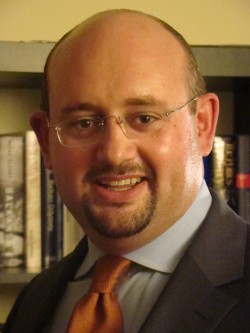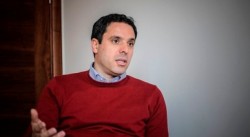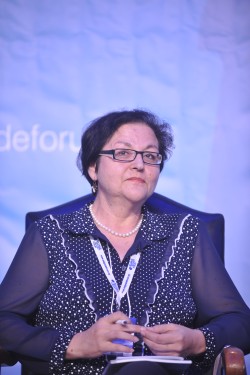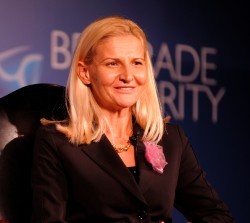Session 2: The Belgrade – Pristina Dialogue and the EU Future
Discussion Points:
- How is the current dialogue helping the EU future of Belgrade and Prishtina?
- Seems that the EU and the sides are doing not enough. What else could be done?
- Is a future EU membership at some point enough of an incentive for the sides to normalize their relations to the fullest? Does such an incentive exist in reality for Pristina?
- What is the current vision of the process?
- Is a comprehensive agreement possible and if yes, when and how?
- What can be other actors do (civil society, parliaments, business community, etc.) to move the process forward? What should be the role of the US?
Speakers:
Tanja Miščević‚ Head of the Negotiating Team for the Accession to the European Union, Government of Serbia
Gordana Čomić‚ Deputy Speaker of the National Assembly of Serbia
Pierre Mirel‚ Honorary Director General of the European Commission
Naim Rashiti‚ Executive Director, Balkans Group
Moderator: Alex Roinishvili Grigorev‚ President, Council for Inclusive Governance
Background
Though the Kosovo conflict ended almost seventeen years ago, and eight years have passed since the unilateral declaration of independence, strong tensions still remain between Belgrade and Pristina. As both are applying to join the membership of the European Union, strict accession process has mandated that relations between Belgrade and Prishtina must improve for either side to have success in their accession.
The Brussels Agreement in 2013 was no doubt a huge step towards the normalization of relations. Since then, however, progress has been slow. Talks ensured greater rights for Serbian community, including recognition of a municipality with Serb majority; reopening of the Mitrovica Bridge; and giving Prishtina its own international country code. Last year talks built and expanded on the 2013 agreement, but still, many of the policies have yet to be implemented. Beyond normalization, trade has been opening up, but slowly, burdened by red tape.
Many barriers to normalization of relations remain. Among them, there is Belgrade’s desire to block Prishtina from joining international organizations like the United Nations. While recognition is not an explicit requirement of Serbia to join the EU, Serbia might have to de facto accept Kosovo’s independence if it wants to ever accede to the European Union. How this nuance plays out will be extremely important in resolving the dispute (at least to the EU’s satisfaction) and moving on with other chapters of EU negotiations.
At the same time, public opinion will be an important factor in the ultimate outcome. Politicians can try as hard as they can to smooth relations over, but the majority of Serbian citizens remain against recognizing Kosovo as an independent country, no matter the cost that would incur.
All of this is happening as both Belgrade and Pristina are still recovering from the wars in the region. For their part, the EU has invested more resources than anybody else in the region to try to help rebuild and establish peace and stability, and has understood that many different factors are contributing to the strained relations between Pristina and Belgrade. This has kept Belgrade and Pristina focused on the path towards better relations, but only to an extent.
———————————————————————————
Seloected Readings
- Bjelic, P., Seceragic, B., Krasniqi, A., Petronijevic, V., Jelacic, M., Vinca, D.; Monitoring of Implementation of the Agreement Concluded between Kosovo and Serbia in the Field of Free Movement of People and Goods (Centar za regionalizam Expert Report, September 2013)
- Linking Peace, Security and Durable Solutions in a Multi-Ethnic Society: The Case of Kosovo (Brookings, September 2014)
- de Borja Lasheras, F., Tcherneva, V., Wesslau, F.; Return to Instability: How Migration and Great Power Politics Threaten the Western Balkans (ECFR, March 2016)
- The Balkan Barometer 2015 (Regional Cooperation Council Public Opinion Survey, 2015)
Previous BSF Panels and Sessions on the topic of Serbia-Kosovo Relations and EU enlargement to the Balkans
2015
Session 1 – Serbia and Kosovo – How Much Longer Before Normality?
Pleanary Panel 4 – Improving the European Model of Governance: Ways Forward
2014
Session 4 – EU Enlargement: Picking up the Pieces?
Pleanary Panel 4 – Is it Time for a New Balkans Commission?
2013
Session 1 – Overcoming the Gaps in Security Cooperation in the Western Balkans
Session 7 – Serbia and Kosovo*: A Game Changer in the Balkans?
Useful Websites





